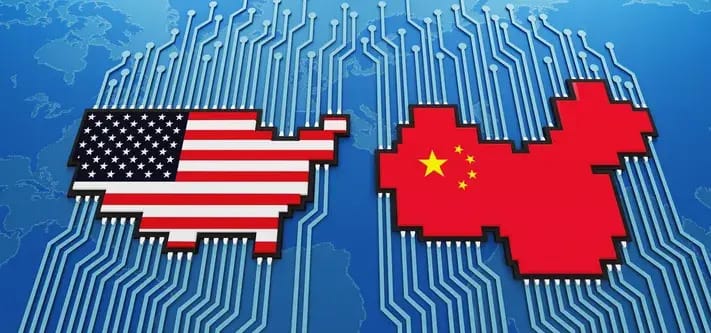- OpenTools' Newsletter
- Posts
- Hollywood Meets AI Content 🎬
Hollywood Meets AI Content 🎬
PLUS: US AI revenue doubles China | Amazon's shopping AI helper

Reading time: 5 minutes
🗞️In this edition
Wonder Studios Raises $12M to Bring AI Content to Hollywood
Sponsored: Hubspot – Turn AI into Income
US AI market hits $41B, nearly doubling China's revenue
Amazon's new AI tool tells you exactly what to buy
Workflow Wednesday #41 ‘AI & Human Creativity’
In other AI news –
Google Earth AI
utility bills rising
Palantir's $200M+ deal
4 must-try AI tools
Welcome to today's edition.
AI's pushing into Hollywood with OpenAI-backed Wonder Studios betting creators want tools, not replacement. The US is pulling ahead of China commercially—$41B to $24B—while DeepSeek proved you can compete on restricted hardware. And Amazon just launched an AI that stops you from overthinking purchases by making the decision for you.
Your feedback's been clear—you want the insights without the fluff. We're doubling down on that. This newsletter is about keeping you sharp and informed, not buried in information you'll never use.
Let's get into it.

Source: TechCrunch
What's happening:
Wonder Studios, a London-based AI creative studio, raised $12M in seed funding led by Atomico. The startup is backed by executives from OpenAI, Google DeepMind, and ElevenLabs.
They produced Lewis Capaldi's "Something in the Heavens" AI music video with DeepMind, YouTube, and Universal Music Group, and launched "Beyond the Loop," an anthology series that hit 1.5M views and got renewed for season two.
The fresh capital will double their 15-person engineering team and push into IP ownership and original content production.
Wonder's positioning themselves as "Hollywood without borders"—democratizing AI storytelling tools for all creators.
Why this is important:
AI remains divisive in entertainment, with artists concerned that LLM-trained tools could threaten their livelihoods. OpenAI's Sora 2 has come under criticism for reproducing actors' likenesses without consent.
But Wonder's betting on collaboration, not replacement. They're building a creator app that connects filmmakers with opportunities and resources.
The model matters. Instead of studios licensing AI tools to cut costs, Wonder's building community infrastructure that helps independent creators monetize.
Our personal take on it at OpenTools:
Entertainment's the next frontier for AI—not because the tech is ready, but because the economics force it.
Wonder's raising at the perfect time. Streaming's margin squeeze means studios want cheaper production. AI-generated shorts and music videos are testing grounds before they touch features.
But here's the tension: artists hate this. Lewis Capaldi's AI video sparked backlash from fans worried about displacing creatives. Wonder's community-first positioning is smart PR, but it doesn't solve the existential threat artists feel.
The $12M round suggests investors believe there's a middle path. We're skeptical. Either AI tools empower creators or replace them—there's not much room between those outcomes.
Turn AI into Your Income Engine
Ready to transform artificial intelligence from a buzzword into your personal revenue generator?
HubSpot’s groundbreaking guide "200+ AI-Powered Income Ideas" is your gateway to financial innovation in the digital age.
Inside you'll discover:
A curated collection of 200+ profitable opportunities spanning content creation, e-commerce, gaming, and emerging digital markets—each vetted for real-world potential
Step-by-step implementation guides designed for beginners, making AI accessible regardless of your technical background
Cutting-edge strategies aligned with current market trends, ensuring your ventures stay ahead of the curve
Download your guide today and unlock a future where artificial intelligence powers your success. Your next income stream is waiting.
Do you like the new OpenTools Newsletter Format? |

Source: Forbes
What's happening:
The US AI market will generate $41B in revenue during 2025, while second-placed China will generate $24B, according to GlobalData's AI Global Market Opportunity Forecasts to 2029 report.
The US generative AI market reached $2.4B in 2025, and nearly 70% of US enterprises are now using AI solutions in some capacity.
The US strength comes from early adopters willing to experiment, backed by a world-class ecosystem of chipmakers, cloud providers, and software innovators, supported by policies like the CHIPS Act.
Asia-Pacific posted the highest growth rate between 2020-2025, led by government-backed AI programs in India and South Korea.
Why this is important:
The revenue gap reflects infrastructure advantage, not just innovation.
US companies scale AI across critical functions quickly, particularly in banking and IT where security and compliance are essential. China's playing catch-up despite DeepSeek proving you can build competitive models on restricted hardware.
But revenue doesn't tell the full story. China's installing 6-7x more industrial robots than the US. They're building physical AI infrastructure while American companies chase software margins.
Our personal take on it at OpenTools:
The US is winning commercially. China's winning strategically.
$41B vs $24B looks dominant until you realize China's GDP is growing faster, their manufacturing base is larger, and they're embedding AI into physical infrastructure at scale.
The CHIPS Act helps, but it's reactive policy trying to preserve advantages that are already eroding. Meanwhile, China's coordinating industrial policy, robot deployment, and AI research as one integrated strategy.
DeepSeek was the wake-up call. They built R1 for $6M using banned chips and open-sourced it globally. That's soft power—winning developer mindshare while the US protects hardware exports.
The revenue lead is real. But infrastructure deployment and manufacturing integration matter more long-term. Ask yourself: who's better positioned in 2030?

Source: Bloomberg
What's happening:
Amazon launched "Help Me Decide," an AI-powered tool that automatically appears after shoppers browse similar items, recommending a specific product based on their shopping history.
Available on Amazon's mobile app and browser for millions of US customers, the tool uses large language models to match purchase history with product descriptions and reviews.
For example, if you're shopping for a camping tent and have bought sleeping bags for four people, stoves, and camping boots, Help Me Decide would suggest an all-season, four-person warm tent.
The tool sticks to your current price range but can suggest cheaper or more expensive options if you choose to see more.
Why this is important:
Amazon's algorithm already considers buying history while recommending products and showing ads. But Help Me Decide surfaces one product "with a clear explanation of why it's a great choice."
This isn't about choice. It's about conversion.
Analysis paralysis kills purchases. Amazon knows that every additional product view without a decision increases abandonment risk. "Help Me Decide" short-circuits that by giving you permission to stop researching.
The personalization matters too. LLMs can write convincing justifications for why you should buy something based on your behavioral data. That's more persuasive than star ratings.
Our personal take on it at OpenTools:
This is Amazon weaponizing AI to solve their biggest problem: too much choice.
The "Everything Store" strength is also its weakness. Endless selection creates decision fatigue. "Help Me Decide" manufactures confidence by making the choice for you, then explaining why you should feel good about it.
The timing's interesting. Amazon added Rufus (AI shopping assistant) last year, then AI-powered shopping guides, then audio summaries. Now this. They're systematically removing friction from every step of the purchase funnel.
But here's the concern: these tools optimize for Amazon's goals (higher conversion, faster purchases), not yours (finding the best product). The recommendation will always skew toward what makes Amazon the most money—higher-margin items, sponsored products, inventory they need to move.
You're not getting neutral advice. You're getting optimized persuasion.
This Week in Workflow Wednesday #42: Sustainable AI – Using AI for long-term growth
This week, I’ll show you how to use Claude to build a full, well-worded newsletter (or blog post) in under an hour. Think of it as the cheat sheet for turning AI into your sustainable writing engine.
Workflow #1: Build a Newsletter Engine with Claude (free).
Step 1: Do more than just train Claude on your style - make sure that it KNOWS who you are, to make sure it absorbs your writing style perfectly, use the following prompt…..We dive into this Claude workflow and 2 more workflows in this week’s Workflow Wednesday.
Google Earth AI gets Gemini-powered geospatial reasoning – Google launched Geospatial Reasoning, a framework powered by Gemini that connects different Earth AI models—weather forecasts, population maps, satellite imagery—to answer complex questions. Instead of just seeing where a storm might hit, analysts can identify which communities are most vulnerable and what infrastructure is at risk, all at once.
AI boom pushing up consumer utility bills 3.6%, says Bank of America – Average utility payments rose 3.6% year-over-year in Q3 2025, with BofA economist David Tinsley linking the increase to soaring electricity demand from AI data centers. The build-out of infrastructure needed to support the AI boom is straining the grid and driving up costs for all ratepayers.
Palantir lands $200M+ partnership with Lumen for enterprise AI – Lumen will spend over $200M on Palantir's Foundry and AI Platform over several years, pairing it with Lumen's edge computing and broadband infrastructure. Palantir contributed to Lumen achieving $350M in cost reductions in 2025, and Lumen's targeting $1B in savings by 2027.
Chaindesk - A no-code platform that allows users to create custom AI chatbots trained on their own data
Iconik AI - A tool that helps users generate stunning app icons for Android, iOS, and web apps without any design skills
Fill3d - A virtual staging tool that brings your empty room to life with photorealistic furniture
Jason AI - A tool for automating B2B conversations and bookings
P.S.
We're committed to making this the best way to stay caught up on AI without the noise.
Hit reply with what's working, what's not, or what stories we should be covering. We read everything and respond to every message.
– The OpenTools Team
How did we like this version? |
Interested in featuring your services with us? Email us at [email protected] |

